‘On Colos’: A Reporter’s Encounter With Lagos Drug Addicts
From Agege to Oshodi, I met with different gangs of drug addicts in notorious parts of Lagos, southwestern Nigeria. Here’s what I found.
After weeks of mapping out areas to easily get sources for a documentary on drug addiction in Lagos, I set out very early on April 12 after asking myself one last time if documenting the lives of drug addicts is something I really want to do. I concluded it was another opportunity to tell stories that matter.
I left for Agege with some doubt due to the fear of harassment and physical abuse. Agege is a suburb notorious for illicit drug sales and abuse, cultism, and other social vices. Even with five police stations around the area, one cannot walk around with the assurance of safety.
After spending roughly 15 minutes in ‘Korope’, an eight-seater minibus commonly used for short-distance trips in Lagos, I arrived at Agege. The scene was notably different. I saw both male and female residents, including minors, with different gangs of drug addicts.
While some were seen taking cough syrup mixed with Tom Tom, a menthol-flavoured candy, to get intoxicated, there were many others taking loud, pawpaw, colorado, cannabis, and other drugs in circulation.
- Cannabis: Also known as marijuana or weed, cannabis is a psychoactive drug from the cannabis plant. It can be smoked or mixed with meals and drinks.
- Codeine: This is an opiate used to reduce cough. It was banned by the federal government in 2018 after young addicts were found to take it regularly for behavioural swings.
- Colorado: It’s a cocktail of psychotropic drugs commonly used by many youths. It is said to be named after Colorado, a state in the U.S. and one of the first to legalise marijuana for citizens above 21 years.
- La Casera and Tom Tom: La Casera is a soft apple drink popular in Nigeria. According to users, this mixture makes consumers highly intoxicated and helps with insomnia.
- Loud: Loud is made up of a heavy dose of formalin, an embalming substance used to preserve human corpses. It has a higher sedation ratio compared to other drugs.
- Rohypnol: Commonly referred to as ‘refnol’, it is used for medical purposes, but drug addicts use it as a sedative drug.
- Tramadol: Though a medicine used for the short-term relief of pains, drug addicts take it to elevate their sexual appetite and gain false confidence. It’s nicknamed Paracetamol among users to avoid suspicion.
- Pawpaw: Drug addicts usually add formalin to dry pawpaw leaves, believing that it has the ability to help them think well.

Aside from the aforementioned, there are different ways to get high, such as inhaling the air inside a soakaway, sniffing car or generator exhaust pipes and visiting garbage sites to inhale hydrogen sulphide and methanethiol. These drugs have different code names, ranging from police ranks to designations in the clergy. For instance, refnol tablets are called ‘Reverend Father’ and Marijuana is regarded as ‘Vegetable’.
Soon, one young man who was under the influence and was swimming in a waterlogged drainage, apparently thinking it was a swimming pool, caught my attention. He was high on Colorado and different onlookers were chanting ‘on colos’ as he hit his head on the ground.
From the Railway Line to Oke-Koto, Akerele, Isale Oja, Yiidii, Moshalashi, and Abe Decking, there have been tales of bullying as drug addicts often stop residents on the road and order them to release their valuables to the ‘kings of the streets’. To have a peek into the lives of these addicts, it’s a must to visit at least one of the hotspots mentioned above.
Though already on the street that links passers-by to the addicts’ settlement, gaining entry to locate my sources was no longer solely within my control, considering the warning I got from people familiar with their conduct. Consequently, I approached a bus conductor to inquire about how to engage the addicts. He agreed to help, but the assistance came with a price. In his words: ‘Mi o le se alaye abete awon boys fun e ni ofe o [I can’t explain how to manoeuvre your way without collecting money].’
Before we parted ways, he warned me to always read the boys’ mood before engaging them in any conversation.
Welcome to Agege railway line
As I approached the rail line, I saw different teenagers and adults, including mothers, acting wildly as a result of intoxication. On my right side, I saw a young lady sitting on the floor half-naked, being slapped by a young man who urged her to return to life. The situation on my left side was not different as another unconscious teenager was seen repeatedly somersaulting as a result of Colorado intake.
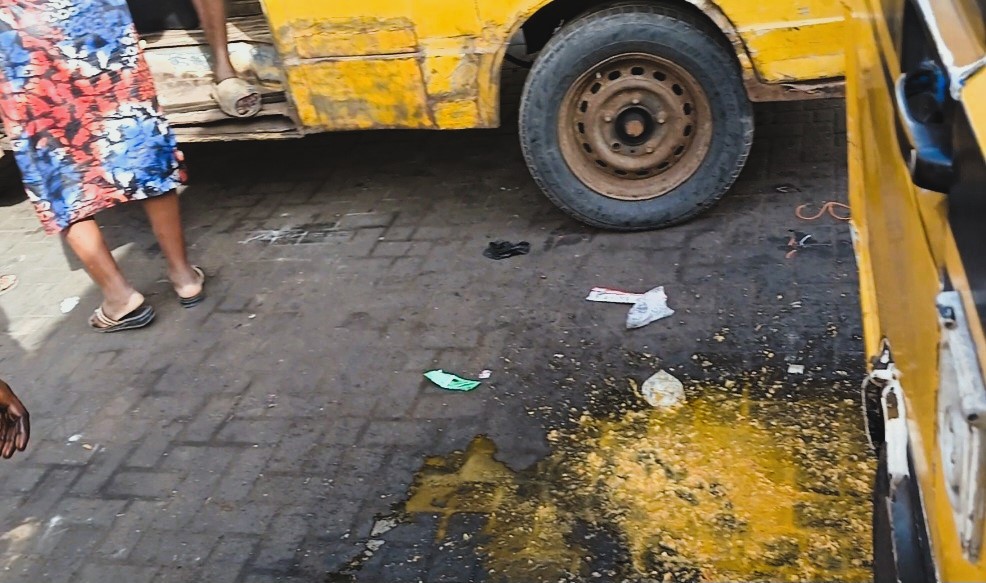
My experience that morning reminded me of several disturbing clips on the internet showing young Nigerians acting wildly.
A 2018 survey conducted by the UN Office on Drugs and Crime (UNODC) and the National Bureau of Statistics (NBS) shows that drug use is prevalent among an estimated 14.4 per cent of Nigerians, much higher than the global average of 5.6 per cent. No doubt, Agege is one of the communities contributing largely to the high prevalence in Lagos.
Concerned about the effects of drug addiction, the House of Representatives in November 2021 called on the Federal Government to declare a state of emergency on drug abuse. The same year, former president Muhammadu Buhari raised an alarm that fighting drug abuse was more dangerous than the war on terrorism.
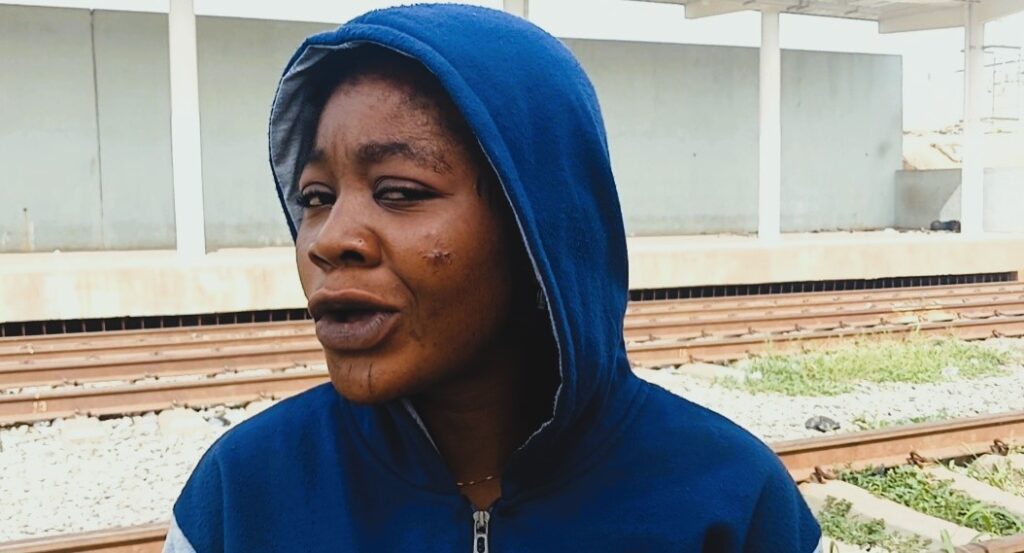
Balikis, fondly called Shege Mama by her peers, spends most of her day smoking at the Railway Line. The young lady, who grew up in Agege, said she feels relieved and forgets her sorrows anytime she smokes. Currently in her early 20s, Balikis’ addiction began with marijuana at the age of 15 after completing her secondary school education. Even though she’s a hairstylist, she spends most of her earnings on drugs.
When asked about her family, she told me it was not a subject she liked to discuss. She blamed her parents for her predicament. She said she was impregnated by a bus conductor immediately after completing her secondary school education, and then her parents sent her packing.
“They said I brought shame to the family. I went to the guy who impregnated me, but he ran away. During these periods, I was using drugs to suppress depression till I became an addict,” she explained.
Today, she’s one of those who go naked on the streets of Agege each time she gets high on Colorado. While Balikis weeps every time she regains consciousness and vows to stop smoking, she goes back the next day because “it is what gives [her] joy”.
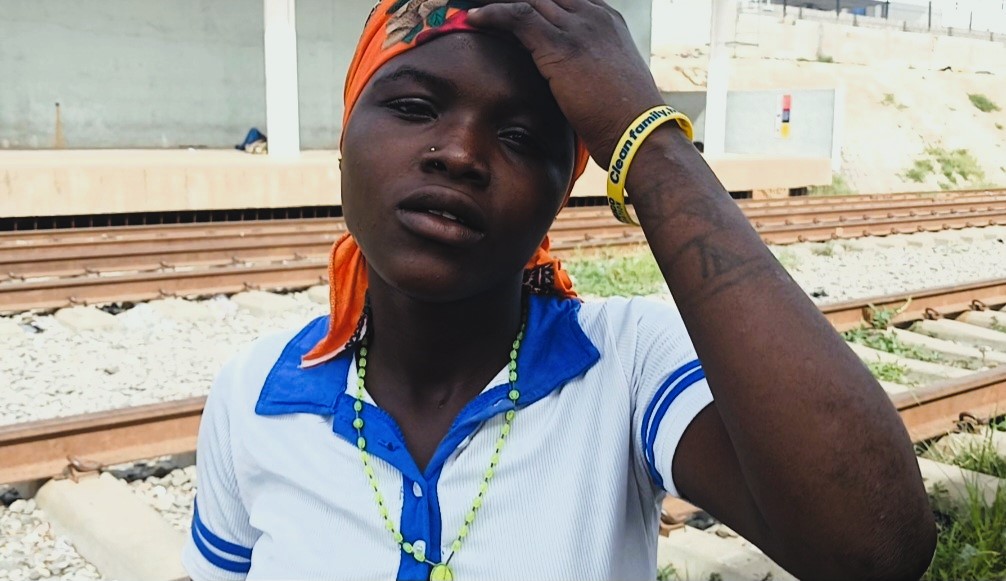
While many people are not happy to associate with Balikis, she’s blessed with a ‘street sister’ called Ibukun. They weep together in times of trouble and return to drugs when they are happy.
Ibukun, 19, is a victim of a failed marriage. Her parents’ separation in 2016 prematurely forced her into adulthood. She later fell prey to the antics of social miscreants while hawking sachet water on the streets and motor parks.
She looked tattered and unkempt when I met her. But that does not matter. All that matters to Ibukun is Colorado.
“The main reason why I am an addict today is because I find myself in the midst of those who smoke all their lives. I was taught how to smoke on the street, and it’s so unfortunate that every penny I make goes into buying hard drugs.”
She added that she had tried to stop, only that her body had grown accustomed to the substances, and she would always feel uncomfortable without them.
“If I can, I would love to leave the street. I am interested in learning fashion design and would appreciate Nigerians’ support,” she said.
More victims of failed marriage
Divorces tend to have long-term effects on family roles and the well-being of children. Like Ibukun, Tobi’s parents fell out when he was little. A few months after their separation, his mother died. He was then taken to his grandmother.
“My grandmother is old, so she could not look after me, so I became a tout. Today, I am addicted to Colorado, and it hurts. It changed our skin, and we are unhappy seeing ourselves this way. However, it is difficult to stop unless it is flushed out of the body system,” he told me.
“The truth is I can’t do without smoking for 30 minutes. We beg for money just to buy drugs. I am willing to quit and would appreciate it if I get necessary medical attention.”
Tobi acknowledged that he was warned by friends and relatives when he started taking marijuana many years ago, but he didn’t listen to their admonition. Though a carpenter, he has abandoned his work to beg passers-by for money. Sometimes, he pickpockets to survive on the streets of Lagos.
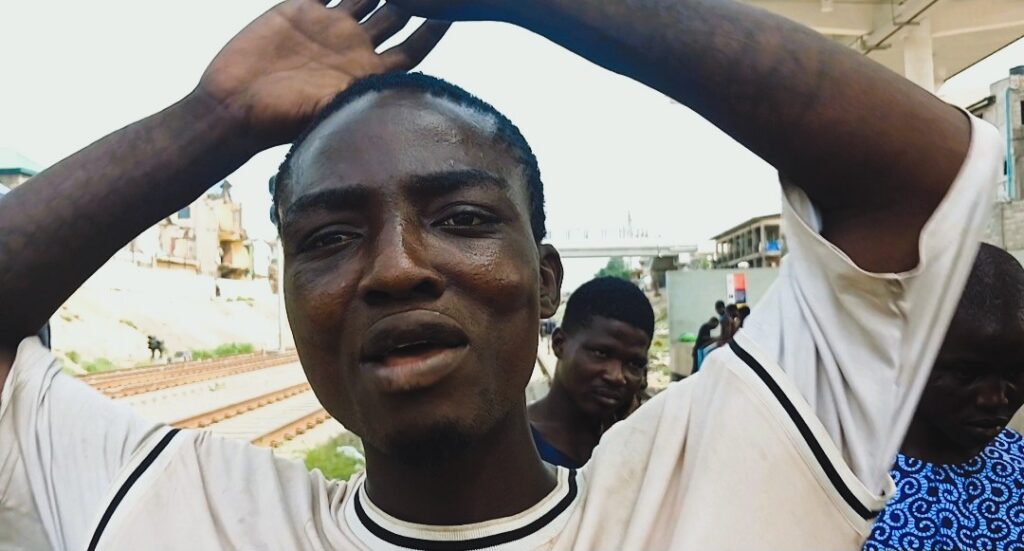
Mothers and grandmothers, too
Sitting quietly in a lone corner of the Railway Line, Mary, a 50-year-old mother of three, appears to have surrendered to pressure. She spends her day with drug addicts and sleeps in the cold every night since her husband was arrested by police during a midnight raid two years ago.
She told me her husband was wrongfully accused of armed robbery, charged without legal representation, and subsequently remanded. Mary and her children became homeless after some months. For her, the only way to overcome depression is through smoking.
Her children now live with her relatives.
“I am depressed because I don’t have money and nobody to fight for the release of my husband. The only thing that gives me joy is hard substance. I’m only praying to God for help. I no longer feel comfortable without smoking Colorado. I need to be freed from this addiction,” she cried.
When intoxicated, Mary often loses her sense of morality and experiences incidents of sexual, physical, and verbal abuse from younger addicts.
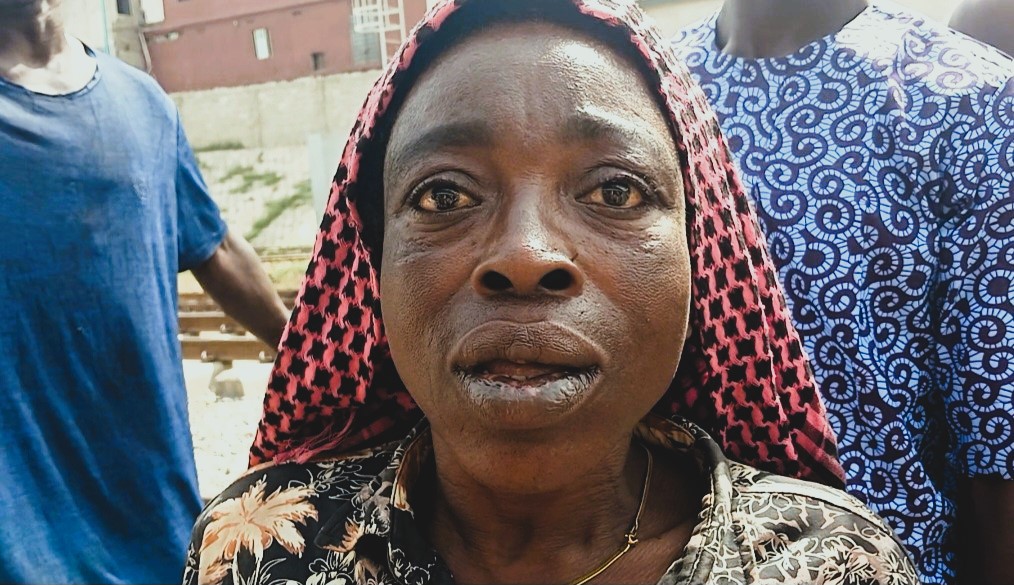
Effects on children
Last month, two infants were rescued from their mother, who was said to have been battling with substance abuse for a while. According to Ebenezer Omejalile, convener of Advocate for Children and Vulnerable Persons Network, the addicted mother usually locked the infants in the house for hours, leaving them to eat, defecate, sleep and wake up without any form of support.
In August 2023, the police also apprehended a 10-year-old girl who used to transport illicit drugs by her guardian in the Agege area of Lagos.
The guardian often put the drugs in her pants to beat police checkpoints. During my interaction with residents, a taxi driver, who identified himself as Elewedu, recalled, “There was a day I sat somewhere in the area, and I saw a young girl who was given illicit drugs by dealers to help them deliver.”
“The girl should be around 15 years. She had her school bag behind her when I saw her. I was so worried because when the girl grows older, it will be difficult for her to stop. Things have now become worse in the community.”
Inside the drug addicts’ hideout at Oshodi
On getting to Oshodi, an unsettling feeling gripped me. I saw more people smoking and drinking in different areas. Though Ahmed Muhammed, my contact person, had assured me of safety, some of the addicts were not comfortable with my planned documentary.
At some points, I ended my video recording abruptly due to the volatile atmosphere. It took the efforts of Muhammed to stop the drug addicts, who double as traffic robbers, from harassing me. After dispersing some of them, he reached a truce with others and led me to the drug addicts’ hideout.
Muhammed, who has spent 30 years as an addict, was born and brought up in Oshodi. He understands the community and has control over some of the touts in the area. He explained that quitting illicit substances is the most very challenging for addicts, especially when it’s become part of their daily routine. Asked how he was able to stop after 30 years, he replied, “It’s the grace of God.”
Meanwhile, Jamiu, one of the boys, said, “the grace of God” that located his street brother was yet to find him. He believes that as an ‘area boy’, there’s no way he could stop smoking. He even goes as far as taking cocaine.
“It is difficult to quit. If I don’t take drugs, I can’t think straight… or do you want to turn us into Mummy’s boy? That’s impossible. I’ve been smoking for the past ten years, and hard drugs give us motivation to think well.”

Berger
The situation is not different at Berger Under-bridge. One of the addicts had just vomited as a result of intoxication when I got to their base.
“Na sapa [poverty] bring me come street,” Azeez, a young man in his early 20s, said in pidgin English. “The time wey I dey house, I no go fit smoke like this. As I come here, I come dey smoke because if I smoke, e dey give me joy. I go enjoy my life. I go fit stop am o, but no be now. I go stop if I don make am.”
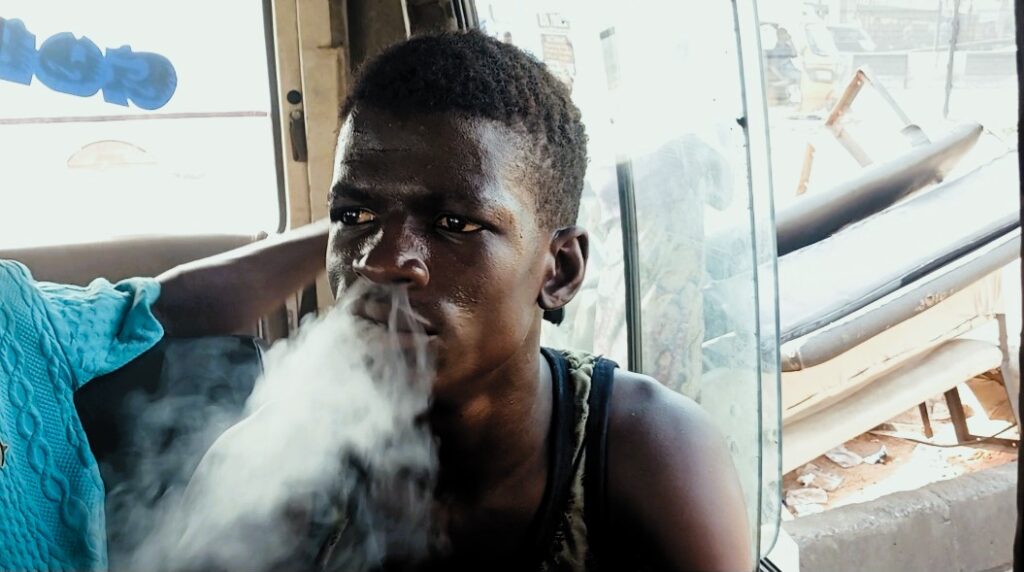
Olamilekan Dagrin has been in the area since 2010, when he was in primary four. He was sent out by his parents for stealing a phone. He’s been homeless since then. He said he has advanced from smoking marijuana to Colorado and finds it hard to quit.
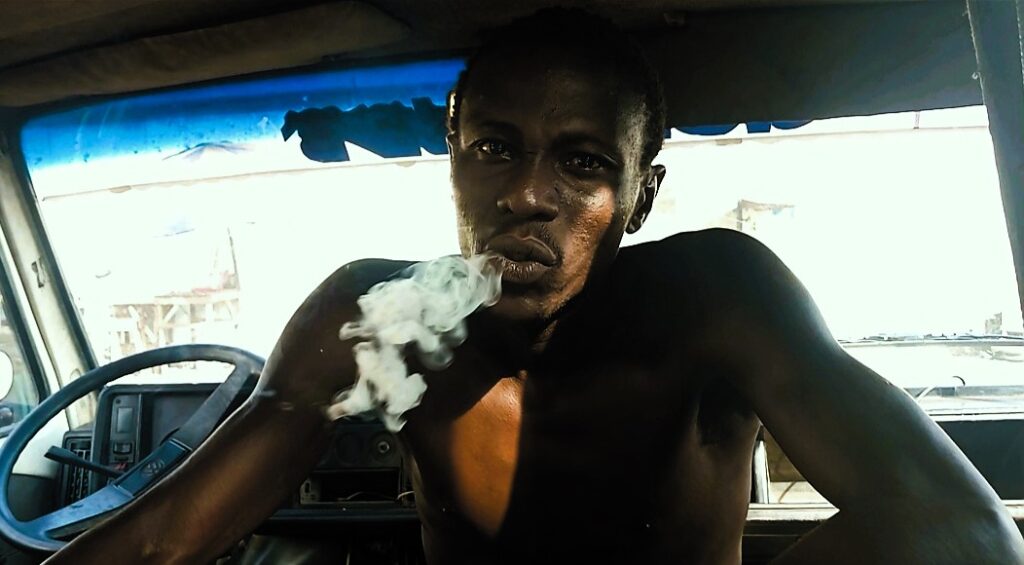
“Just the way it’s not easy to start, it’s not easy to leave,” he said between puffs. “It’s part of the blood and water in my body, so it is difficult to quit. Some of us cannot live comfortably without it except if we are taken to hospital for proper medical and mental care.”
When he and others cannot afford to buy their drugs, they resort to begging, harassing, and robbing innocent people.
As I tried asking further questions, I observed that Dagrin was becoming less conscious. Soon, he vomited on my body, and a chorus followed from different onlookers at the scene: ‘on colos!’
I left Dagrin misbehaving on the floor as I looked for water to rinse off the dirt on my body. I wondered if he would ever stop or at least get the care he so desperately needed.
Support Our Journalism
There are millions of ordinary people affected by conflict in Africa whose stories are missing in the mainstream media. HumAngle is determined to tell those challenging and under-reported stories, hoping that the people impacted by these conflicts will find the safety and security they deserve.
To ensure that we continue to provide public service coverage, we have a small favour to ask you. We want you to be part of our journalistic endeavour by contributing a token to us.
Your donation will further promote a robust, free, and independent media.
Donate HereStay Closer To The Stories That Matter





